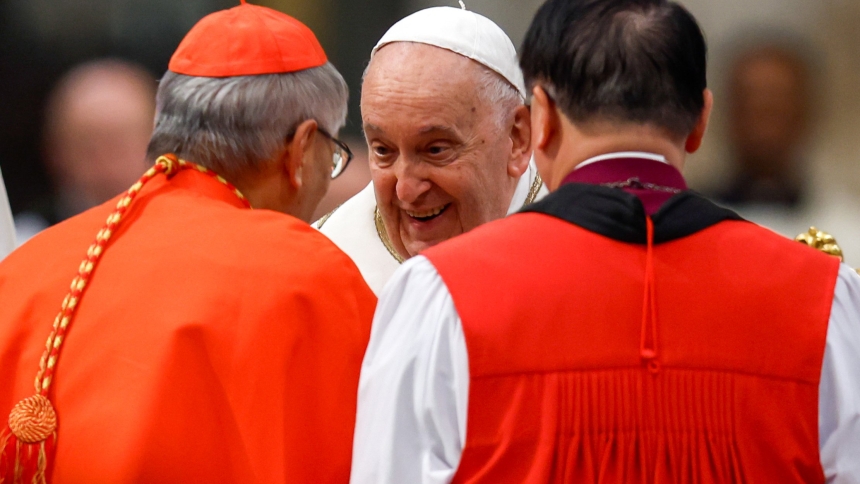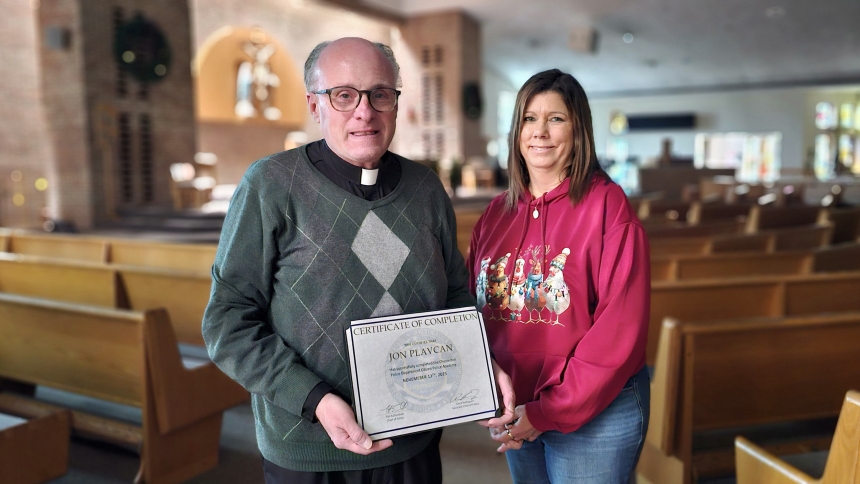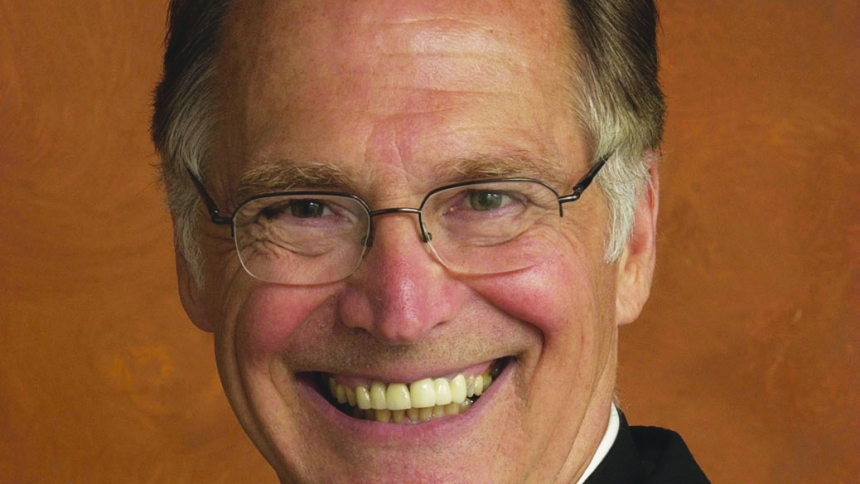
ROME (CNS) - Divided Christians will draw closer to one another only by loving God and loving their neighbors, serving one another and not pointing fingers in blame for past faults, Pope Francis said.
Closing the Week of Prayer for Christian Unity with an evening prayer service Jan. 25 at Rome's Basilica of St. Paul Outside the Walls, Pope Francis was joined by Anglican Archbishop Justin Welby of Canterbury and, at the end of the service, the two commissioned pairs of Anglican and Catholic bishops from 27 countries to "bear witness together to the hope that does not deceive and to the unity for which our Savior prayed."
Members of the Joint International Commission for Theological Dialogue between the Catholic Church and the Oriental Orthodox Churches, who were meeting in Rome, also participated along with representatives of Orthodox, Protestant and Anglican communities in Italy.
In his homily, Pope Francis reflected on the theme for the 2024 celebration of the week of prayer: "You shall love the Lord your God ... and your neighbor as yourself" from Luke 10:27.
The passage comes from a Gospel story in which a scholar of the law asks Jesus what he must do to inherit eternal life. After Jesus affirms the need to love God and one's neighbor, the scholar asks, "And who is my neighbor?"
"This question attempts to divide, to separate people into those we should love and those we should shun," Pope Francis said. "This kind of division is never from God; it is from the devil."
"Only a love that becomes gratuitous service, only the love that Jesus taught and embodied, will bring separated Christians closer to one another," he said. "Only that love, which does not appeal to the past in order to remain aloof or to point a finger, only that love which in God's name puts our brothers and sisters before the ironclad defense of our own religious structures, will unite us."
Although it was not foreseen, Archbishop Welby also offered a reflection at the service, explaining that Pope Francis invited him to do so.
Christians, he said, as individuals and as churches can choose to be angry or to love. "Anger imprisons us; our rivalry or dislike of our brothers and sisters cuts us off from the freedom that God offers his church."
But, the archbishop said, "a church caught up in the fire of the love of God through the Holy Spirit will be a church of reconciliation, a church of hope, a church of healing," it will be a church that can "care for the millions, the billions who are by the road in pain, lost and suffering."
Christians, Pope Francis said in his homily, should never have to ask who their neighbor is because "each baptized person is a member of the one body of Christ; what is more, everyone in this world is my brother or my sister, and all together we compose that 'symphony of humanity' of which Christ is the firstborn and redeemer."
Pope Francis urged people to ask themselves: "Do I, and then my community, my church, my spirituality, act like a neighbor? Or are they barricaded in defense of their own interests, jealous of their autonomy, caught up in calculating what is in their own interest, building relationships with others only in order to gain something for themselves?"
If it is the latter, he said, "it would not only be a matter of mistaken strategies, but of infidelity to the Gospel."
The week of prayer concludes each year on the feast of the conversion of St. Paul. At the beginning of the liturgy, Pope Francis, Archbishop Welby and Orthodox Metropolitan Polykarpos of Italy, the Ecumenical Patriarchate's representative in Rome, prayed before what is believed to be St. Paul's tomb.
According to the Acts of the Apostles, after his conversion St. Paul immediately asks, "What am I to do, Lord?"
Christians, although divided, the pope said, must also ask, "What are we to do, Lord?"
The first response, the pope said, is "pray."
"Prayer for unity is the primary responsibility in our journey together," he said. "And it is a sacred responsibility, because it means being in communion with the Lord, who prayed above all to the Father for unity."
Pope Francis and Archbishop Welby also prayed for peace, remembering particularly the people of Israel and Gaza, Ukraine, Sudan, South Sudan and Congo.
When St. Paul asked God what he was supposed to do, the pope said, the Lord told him, "Get up and go."
"Get up, Jesus says to each of us and to our efforts on behalf of unity," the pope said. "So let us get up in the name of Christ from our tired routine and set out anew, for he wills it, and he wills it 'so that the world may believe.'"
Caption: Pope Francis greets Cardinal Stephen Chow Sau-yan of Hong Kong and Anglican Bishop Matthias Tze-Wo Der of Hong Kong, after an evening prayer service at the Basilica of St. Paul Outside the Walls in Rome Jan. 25, 2024. The service marked the end of the Week of Prayer for Christian Unity. (CNS photo/Lola Gomez)


